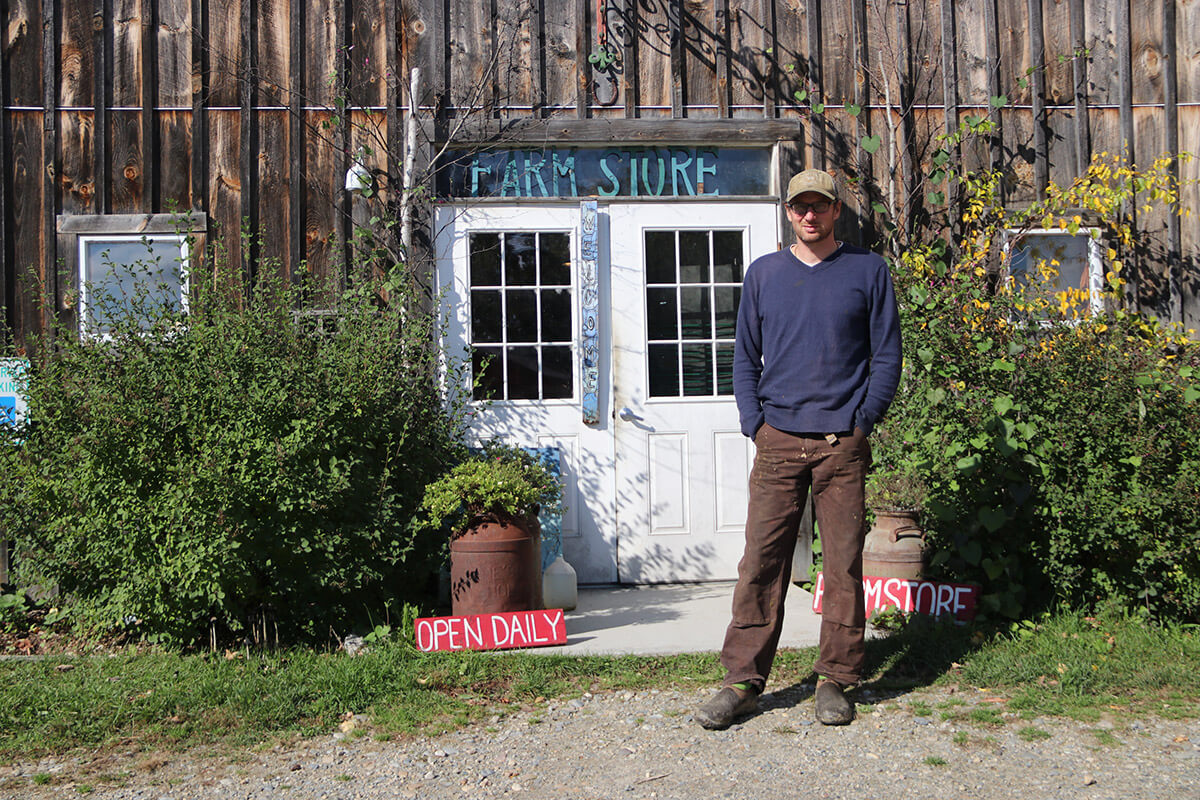
Here’s a common conundrum: Let’s call it “the cheese choice.” You’re at the market, envisioning scrumptious sandwiches for your kids’ school lunches. Or maybe you’re planning the perfect platter for a weekend dinner party, or simply envisioning an indulgent midnight snack. You need that make-or-break ingredient: the right cheese. But hovering at the counter, you’re overwhelmed by the dizzying array of wheels and wedges, slices and hunks. Domestic Swiss? A soft Brie? Sharp cheddar? Extra sharp cheddar?
Next time, you might want to consider going local and trying an award-winning artisanal cheese from Cricket Creek Farm in Williamstown, MA.
At Cricket Creek Farm, the Sabot family made a cheese choice of their own after purchasing the more than 100-year-old dairy farm in 2002, putting high-quality cheese making at the center of their business.
While Cricket Creek’s other offerings include raw milk, grass-fed beef, and whey-fed pork, artisanal cheese is a value-added product that allows the farm to compete in a crowded marketplace. “Right now, conventional milk price is very low – around $15 for a hundred pounds of milk,” says Topher Sabot, an owner and manager of Cricket Creek Farm. “When we turn our milk into cheese, we can sell in upwards of $100 per hundred pounds. Although we incur a large amount of extra costs making cheese, we’re not at the mercy of fluid milk prices.”
For Cricket Creek Farm to maximize the value of the 25,000 pounds of cheese they produce each year, minimizing those costs is critical. And cheese making is a delicate process – with many steps and pieces of equipment and opportunities for waste and inefficiencies along the way.
“The original heating system had been cobbled together and was inefficient, unreliable, and slow,” says Topher. “Adding hours to pasteurizing pushes cheese making into late in the day – it’s not workable for our team and can cause issues for the cheese.”
Upgraded heating system and 360-gallon pasteurization vat (left)
Thanks to funding this year from the Local Farmer Awards, upgrades to Cricket Creek Farm’s heating system and 360-gallon pasteurization vat have improved the efficiency of their cheese making, lowering costs and reducing waste.
Established by Harold Grinspoon in 2015 and now in its fourth year, the Local Farmer Awards provide farms in the Western Massachusetts region up to $2,500 to fund infrastructure improvements. Major partners BIG Y and Harold Grinspoon Charitable Foundation fund the awards along with a group of sponsors that continues to grow: HOOD, FRIENDLY’S, PEOPLESBANK, SHERATON SPRINGFIELD MONARCH PLACE, Ann and Steve Davis, BAYSTATE HEALTH, FARM CREDIT EAST, and FLORENCE BANK.
Their Local Farmer Award helped Cricket Creek Farm to dramatically reduce the time it takes to heat and pasteurize milk, saving work hours and allowing their creamery team to dedicate more attention to the critical later steps of cheese making.
“This program is just amazing because it’s money that can be used for things that you can’t usually get grants for, like equipment, that have a direct and immediate impact on operations,” says Topher. He estimates the award-funded upgrades have reduced pasteurizing time by approximately 30%. “It’s a very cool thing.”
The end result is better work flow for the team and better, more consistent cheese for the community.
For Topher, cheese doesn’t just make good business sense; it also scratches a creative itch. “Cheese is an amazing product. It’s interesting. It’s challenging. It’s also an opportunity to create something that’s unique.”
This is where art meets the science of cheese making and where local is more than just a label. Cricket Creek Farm makes cheese three to five times a week from the milk of the nearly 80 cows that graze on their 200 acres of land. What the cows eat and how they’re treated comes out in the quality and taste of the cheese: Before the milk, it’s the grass of the cows’ grass-based diet that is the first ingredient in the cheese making process.
“The flavors that emerge really reflect the uniqueness of this place,” says Beth Lewand, Cricket Creek Farm’s operations manager. “They reflect the cows and the foods they’re eating.”
Topher adds, “The characteristics of the cheese are going to be determined by that specific farm. You can take our recipe and all our equipment to another place, and it would be a different cheese. The soil would be different. The cows would be different.”
So when you’re tasting one of Cricket Creek’s offerings – maybe Maggie’s Round (gently sharp, sweet, bright and fruity, with notes of citrus) or Maggie’s Reserve (a savory richness, with flavors of caramel and pineapple) – you’re not just supporting a local business. You’re sampling a distinct product of the Berkshires that couldn’t exist anywhere else.
While some may balk at the cost of artisanal cheese, it’s not only the quality that factors into it – it’s also how the Sabots choose to run their farm. “The price point for artisanal cheese is never going to compete with a block of [conventional] cheddar,” says Beth. “We take individual care of the cows, maintain the land, and make cheese by hand.”
“We try and be an active part of the community,” says Topher. “It’s not common for a dairy farm to be open where you can see the animals. What you’re paying for from us is great cheese – exciting and interesting to eat – and keeping the land open.”
Cricket Creek Farm is located at 1255 Oblong Rd. in Williamstown, MA and is a member of the Berkshire-based buy local organization Berkshire Grown. To learn more about the farm, click here. Cricket Creek Farm cheeses can be found at their Farm Store and many locations in and around Western Massachusetts. For a list of locations, click here. You can follow Cricket Creek Farm on Instagram at @cricketcreekfarm.